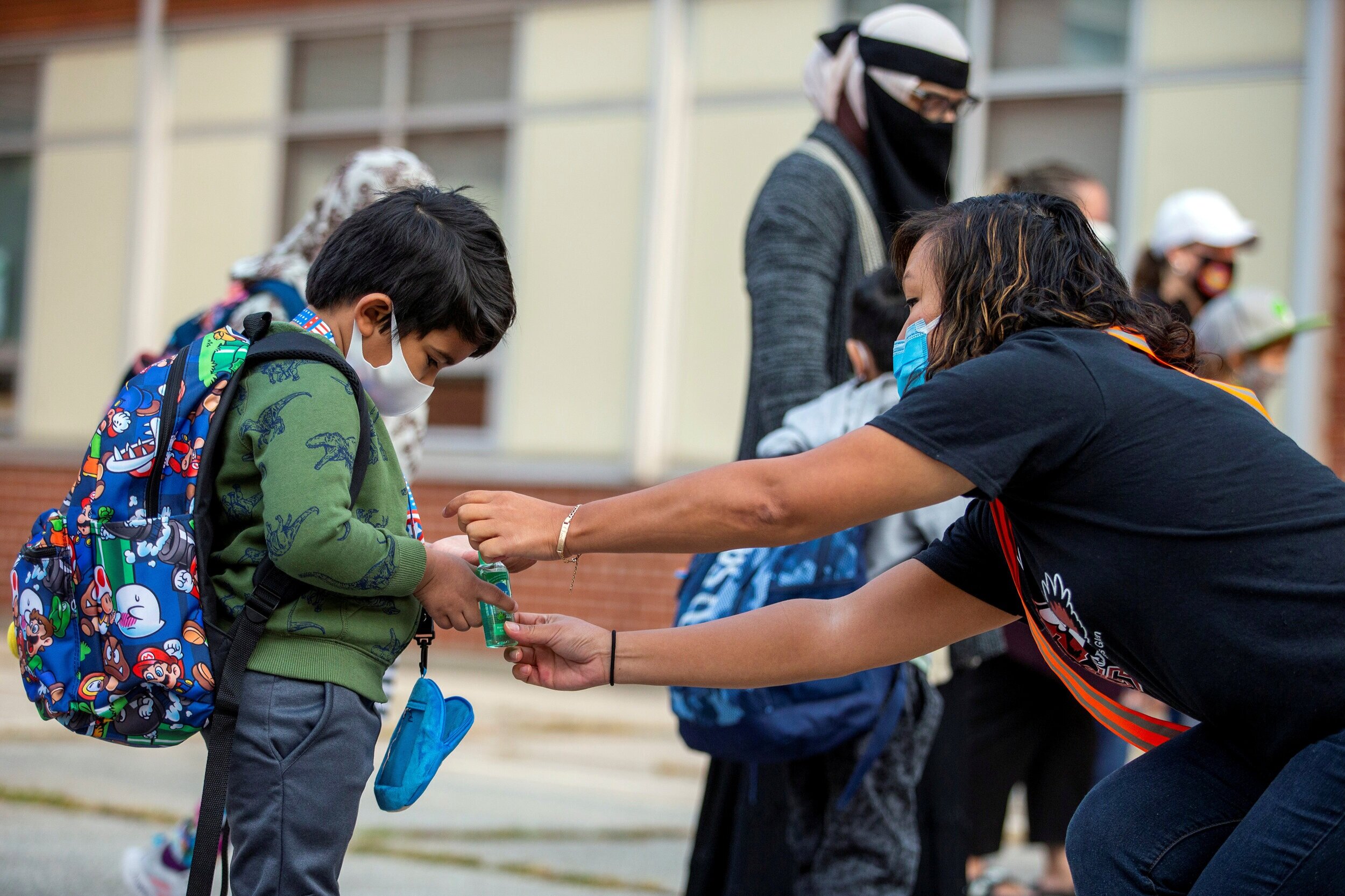How to Help Kids Cope with Coronavirus Fears
By Kaelyn Forde
The worsening coronavirus outbreak in the U.S. has already shuttered school districts across the country. Many Americans have been tasked with working from home full-time while caring for their kids amid a climate of growing uncertainty. In addition to keeping kids occupied and out of harm’s way, parents may also be fielding questions about how long life as we know it will continue to be disrupted. So how can you keep your family calm during this tough time?
I reached out to Lisa Dissinger, a Pennsylvania-based child psychologist and parent coach, and the National Association of School Psychologists (NASP) for some tips.
1. Manage your own anxiety first
“Be aware of what your triggers are during a time that is so uncertain. Parents need to have conversations with adult friends, or maybe even their own parent, if they find that comforting,” Dissinger says. “Talk to someone you know is going to keep things in perspective,” she advises, and “if you know you’re anxious, take care of your own anxiety.” Self-care for parents can include going out for a walk while practicing social distancing, using a meditation app, taking a remote yoga class or finding a therapist to see via Skype. Once you’ve got your own metaphorical oxygen mask on, you can help others with theirs.
2. Stay positive
“Model positive, optimistic thinking, even if you’re thinking about the worst-case scenario,” Dissinger advises. NASP has a handy coronavirus fact sheet for parents, which points out that children will react to both your verbal and nonverbal cues, so try to stay calm and reassuring in your body language as well. Stick to the truth, and help kids reframe their anxiety and put their fears in perspective, emphasizing that your family has a safe place to live, food to eat and each other to rely on. Invite them to talk too.
3. Avoid information overload
When it comes to how much information to share with kids about the coronavirus itself, remember that there is such a thing as too much information. Keep the message clear and straightforward. “Start with, ‘My job is to keep you safe, and that’s also your school’s job. Right now, school is closed because there are too many people getting sick. And so, by staying home, we are helping people stay safe,” Dissinger says. Never blame or stereotype one group of people for the virus, the NASP advises, and let school-age kids know they should report any bullying or negative comments from classmates when they hear them.
It can be easy to plug kids into a tablet or TV while you try to get work done, but monitor what content they watch and keep them away from news reports that might be upsetting. For older kids, emphasize that not everything they read online about the virus is necessarily true, NASP suggests. When at a loss for words, “practice bibliotherapy,” Dissinger says, and find a book that might help you have that tough conversation, like I Can Handle It (about positive self-talk) or In My Heart (about emotions). Bonus points if you order it from a local bookstore that may be struggling through a mandatory closure.
4. Stick to daily routines
City-dwelling parents may find having everyone home at once in a small apartment especially stressful. “Staying in close quarters with your child for extended periods of time is going to be the most challenging thing for a lot of families,” Dissinger says. “So create a daily structure for your family.” Wake up, shower, change clothes and have breakfast. Then dive into the day, whether it starts with a walk outside or online learning. “Structure helps to reduce anxiety. When things are too loose, kids frequently act out. So the more structure we provide, the better everyone feels emotionally.”
5. Practice gratitude
At the end of the day, share three things you’re thankful for, and have your children do the same. “Have a daily ritual of appreciating how much you are lucky for, despite this pandemic,” Dissinger says. Remind kids that there are those experiencing the extra challenges of food insecurity, domestic violence or homelessness during this time, and consider donating to local organizations that help in your community. And then, turn your attention to the positive. In the words of Mr. Rogers: “When I was a boy and I would see scary things in the news, my mother would say to me, ‘Look for the helpers. You will always find people who are helping.’”






